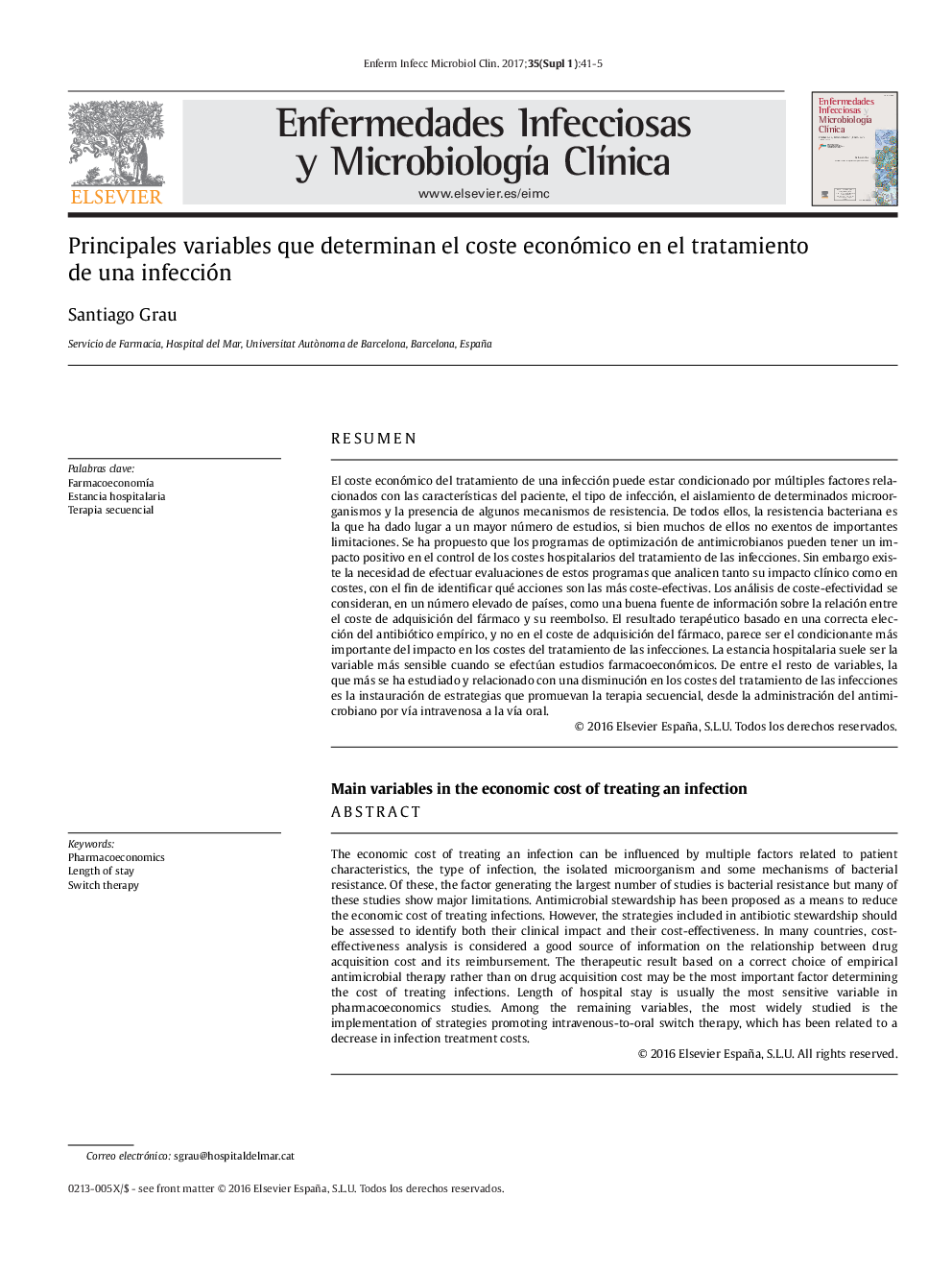| Article ID | Journal | Published Year | Pages | File Type |
|---|---|---|---|---|
| 5672048 | Enfermedades Infecciosas y Microbiología Clínica | 2017 | 5 Pages |
Abstract
The economic cost of treating an infection can be influenced by multiple factors related to patient characteristics, the type of infection, the isolated microorganism and some mechanisms of bacterial resistance. Of these, the factor generating the largest number of studies is bacterial resistance but many of these studies show major limitations. Antimicrobial stewardship has been proposed as a means to reduce the economic cost of treating infections. However, the strategies included in antibiotic stewardship should be assessed to identify both their clinical impact and their cost-effectiveness. In many countries, cost-effectiveness analysis is considered a good source of information on the relationship between drug acquisition cost and its reimbursement. The therapeutic result based on a correct choice of empirical antimicrobial therapy rather than on drug acquisition cost may be the most important factor determining the cost of treating infections. Length of hospital stay is usually the most sensitive variable in pharmacoeconomics studies. Among the remaining variables, the most widely studied is the implementation of strategies promoting intravenous-to-oral switch therapy, which has been related to a decrease in infection treatment costs.
Related Topics
Life Sciences
Immunology and Microbiology
Microbiology
Authors
Santiago Grau,
